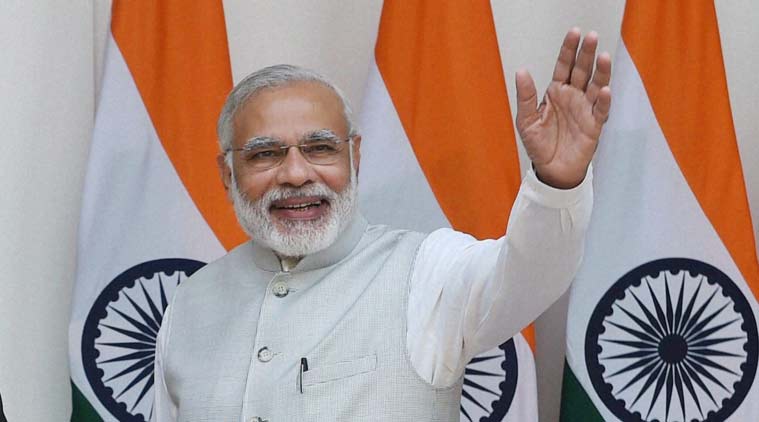Foreign carriers can buy up to 49% in the loss-making national airline, the government said in a statement.
Sale of shares of Air India will be one of the key reforms in recent years. The airline is struggling with a debt burden of $ 7.6 billion and survives thanks to help from taxpayers.
So far only IndiGo, India's largest carrier, has expressed an interest in buying Air India.
The country's authorities also allowed foreign retailers operating under the same brand to start local operations without the approval of the federal government. In addition, foreigners can own up to 100% in brokerage firms conducting real estate transactions.
Changing the rules can benefit the Japanese Fast Retailing Co., which owns the Uniqlo brand. The largest clothing retail chain in Asia filed an application in November to obtain permission to conduct business in India under the Uniqlo brand.
Modi seeks to attract foreign capital to revive economic growth. The economy of India has grown at a minimal pace since its inception in 2014.
According to the World Bank, India's GDP increased by 6.7% last year, instead of the expected 7.2% in June.
According to the Ministry of Trade, foreign direct investment in India increased by 17% year-on-year to $ 21 billion from April to September. Since coming to power, Modi has softened the rules for investing in the defense, construction, insurance, pension and other sectors. This led to a record inflow of foreign investment for the year ended March 2017.
Modi's Make in India plan encourages foreign firms to develop production in the country by offering them simplified conditions for acquiring land, reducing the number of required approvals and in some cases offering other incentives. These efforts helped India improve its position in the World Bank's Doing Business rating, which assesses the business environment.
In addition, in November last year, the international rating agency Moody's Investors Service raised India's sovereign rating for the first time in 14 years - from Baa3 to Baa2. "The decision to upgrade the ratings is supported by Moody's expectations that further progress in economic and institutional reforms will eventually improve the high growth potential in India," Moody's said.
The rating agency noted a new tax on goods and services as a measure that would "increase productivity," and stated that the Aadhaar system and demonetization helped "reduce the non-compliance with formalities in the economy."
However, Anil Agarwal, head of Asian financial research Morgan Stanley, admitted that it would take some time to introduce a digital system in the informal sector of the Indian economy.
"It will take some time, because this is a significant change in habits, a significant change in the business model ... But I think that over the next 12-18 months, by the fiscal year 2019 or the beginning of 2020, you will begin to notice these changes", - he said.
source: reuters.com, cnbc.com
Sale of shares of Air India will be one of the key reforms in recent years. The airline is struggling with a debt burden of $ 7.6 billion and survives thanks to help from taxpayers.
So far only IndiGo, India's largest carrier, has expressed an interest in buying Air India.
The country's authorities also allowed foreign retailers operating under the same brand to start local operations without the approval of the federal government. In addition, foreigners can own up to 100% in brokerage firms conducting real estate transactions.
Changing the rules can benefit the Japanese Fast Retailing Co., which owns the Uniqlo brand. The largest clothing retail chain in Asia filed an application in November to obtain permission to conduct business in India under the Uniqlo brand.
Modi seeks to attract foreign capital to revive economic growth. The economy of India has grown at a minimal pace since its inception in 2014.
According to the World Bank, India's GDP increased by 6.7% last year, instead of the expected 7.2% in June.
According to the Ministry of Trade, foreign direct investment in India increased by 17% year-on-year to $ 21 billion from April to September. Since coming to power, Modi has softened the rules for investing in the defense, construction, insurance, pension and other sectors. This led to a record inflow of foreign investment for the year ended March 2017.
Modi's Make in India plan encourages foreign firms to develop production in the country by offering them simplified conditions for acquiring land, reducing the number of required approvals and in some cases offering other incentives. These efforts helped India improve its position in the World Bank's Doing Business rating, which assesses the business environment.
In addition, in November last year, the international rating agency Moody's Investors Service raised India's sovereign rating for the first time in 14 years - from Baa3 to Baa2. "The decision to upgrade the ratings is supported by Moody's expectations that further progress in economic and institutional reforms will eventually improve the high growth potential in India," Moody's said.
The rating agency noted a new tax on goods and services as a measure that would "increase productivity," and stated that the Aadhaar system and demonetization helped "reduce the non-compliance with formalities in the economy."
However, Anil Agarwal, head of Asian financial research Morgan Stanley, admitted that it would take some time to introduce a digital system in the informal sector of the Indian economy.
"It will take some time, because this is a significant change in habits, a significant change in the business model ... But I think that over the next 12-18 months, by the fiscal year 2019 or the beginning of 2020, you will begin to notice these changes", - he said.
source: reuters.com, cnbc.com





